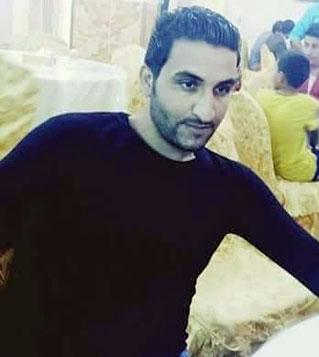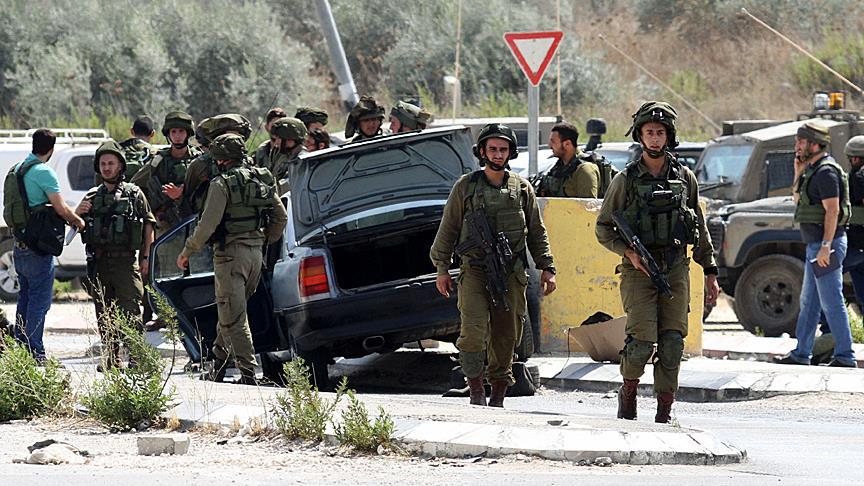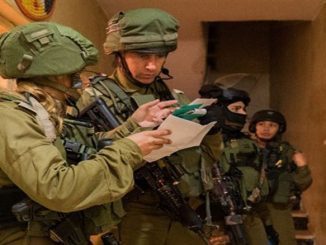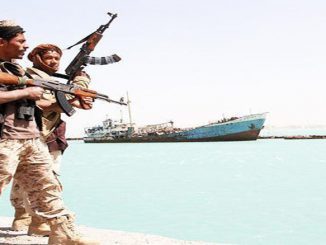
The government on Saturday condemned the “barbaric” and “deliberate” killing of a Jordanian man by Israeli forces in Jerusalem a day earlier.
Israeli occupation forces shot Saeed Amro, 28, outside Al Aqsa Mosque, killing him instantly, his relatives told The Jordan Times.
Ministry of Foreign Affairs Spokesperson Sabah Rafi disputed the Israeli forces statement claiming that Amro had tried to attack Israeli soldiers.
Rafi noted that the same statement also said that no Israeli officer or soldier sustained any injuries in the incident.
“The Jordanian government is following up on the case to look into all the details and to hand over the body of the martyr to his family in preparation to take internationally followed legal and diplomatic procedures in such cases,” Rafi added.
Amro’s relatives on Friday urged the swift return of his body.
The young man had travelled to Jerusalem on Thursday to meet with relatives and visit Al Aqsa Mosque, according to his brother Abdullah.
“He wanted to enter Al Aqsa Mosque for Friday prayers. He was asked to open his bag to be searched and then he was shot in the head. This is what eyewitnesses informed us,” he told The Jordan Times.
“We want him back as soon as possible to bury him and we want an investigation into this killing,” said Abdullah, who added that Amro had nine other siblings.
Ramzi Amro, the victim’s cousin, said Amro informed his family about the planned trip to Jerusalem during Eid Al Adha and that he was eager to visit Al Aqsa.
“Saeed was a very kind, respectful person. He was not radical at all and he did not even have any political orientations,” said Ramzi.
Saeed worked for the water department in Al Qaser in Karak Governorate.
Members of al-Amr’s family said they “doubted the Israeli narrative” of his death. The 28-year-old Jordanian citizen was shot dead by Israeli border police in front of Damascus Gate of occupied East Jerusalem’s Old City Friday afternoon, after he allegedly attempted to stab an Israeli officer stationed there, according to Israeli police. The family is still waiting for al-Amr’s body to be returned to them.
A witness told Israeli newspaper Haaretz at the time that he didn’t see al-Amr attacking anyone before he was killed. When Israeli police officers suspected the man and asked him to lift his shirt, al-Amr yelled “Allahu akbar,” and was shot by one of the officers, the witness added.
Israeli police spokesman Micky Rosenfeld said police found three knives on al-Amr’s person, which Rosenfeld claimed al-Amr intended to use in a stabbing attack.
Several of al-Amr’s family members, who spoke said they doubted the Israeli police narrative.
His mother said she was “shocked” when she received the news about his death.
Al-Amr, according to a close friend, realized his dream of praying in Al-Aqsa after the young Jordanian obtained a tourist visa to visit Jerusalem through a tourism company.
Said Hayil al-Amr, shot dead by Israeli border police in Jerusalem on Friday
A first degree relative who also asked to remain anonymous highlighted that al-Amr was “committed” to religion, but “never expressed extremist ideology, was never affiliated to any organization, or joined any political activities.” He added that al-Amr used to “go to mosque for prayer, then come back home.”
“I knew him very well and we used to spend time together. He was polite, well-mannered, and committed to religion, but he was never the type of person to preach or intervene in other people’s affairs.”
Al-Amr is survived by his mother, three brothers, and four sisters. He studied at Mutah University in al-Karak, and was employed by the city’s water distribution company.
Mourners offer condolences to the al-Amr family in the Jordanian village of al-Mughayyir
Hundreds of mourners gathered at a hall in the center of the village of 4,000 to offer their condolences to the al-Amr family.
According to tradition, families of the deceased meet for three days after the burial to receive condolences. However, the al-Amr family is still waiting for an answer from the Jordanian government and Jordan’s ambassador to Israel about the return of Said’s body.
“Nothing has been made clear to us so far, and no date has been set for returning the body,” a friend of the family told Ma’an.
Mourners offer condolences to the al-Amr family in the Jordanian village of al-Mughayyir
One of Said’s uncles said an atmosphere of sadness and shock prevailed in al-Mughayyir. “He simply went to Al-Aqsa to pray, but it seems his own feet took him to his death. (Israeli police) claimed he attempted to stab someone, but that cannot be true. He never had such thoughts.”
Family members and friends said they appealed to the Jordanian government to do its best to facilitate the return of al-Amr’s body so he can be laid to rest in his hometown.
Israeli border police at Damascus Gate, moments after Said al-Amr was shot dead by officers
Four Palestinians were shot dead by Israeli forces within 48 hours of al-Amr’s killing, three of whom were killed while attempting attacks on Israeli targets, according to Israeli authorities. The fourth was was fatally shot while Israeli forces attempted to detain him in in the Hebron-area village of Beit Ula.
Less than 45 minutes before al-Amr was shot, a Palestinian man was shot and killed, his fiancee shot and critically injured, after the two allegedly committed a car-ramming attack in the occupied West Bank district of Hebron. It was initially reported that three Israeli civilians were injured in the incident, though Israeli news site Ynet later said the three were “treated for shock but were physically unharmed.”
Just two hours later, a 15-year-old Palestinian was shot and killed in the Tel Rumeida area of Hebron’s Old City after he reportedly lightly injured an Israeli soldier. The following day, another Palestinian man would be shot dead in the same area for allegedly attempting a stabbing attack.
Since a wave of unrest first swept across the occupied Palestinian territory and Israel in October, 227 Palestinians have been killed by Israelis and 32 Israelis have been killed by Palestinians.
The violence against Israelis has mostly been characterized by alleged small-scale attacks carried out by individual Palestinians, usually against uniformed Israeli soldiers and police.
Rights groups have denounced what they have termed a “shoot-to-kill” policy by the Israeli forces, which they say has led to the death of numerous Palestinians who did not constitute a threat or who could have been subdued in a non-lethal manner.
Meanwhile, Israeli authorities dramatically escalated their policy of withholding the bodies of slain Palestinian accused of carrying out or attempting to carry out attacks, alleging that mass funerals held in the occupied Palestinian territory led to “incitement” against Israel.
Human rights organizations have widely condemned the policy, with prisoners’ rights group Addameer calling it a form of “collective punishment” against Palestinians who had not been accused of any wrongdoing, also noting that it “adds to the severe grief and trauma of families of the deceased.”
Given the family’s nationality and residence, it remained unclear if Israel would subject the al-Amr family to the policy.



